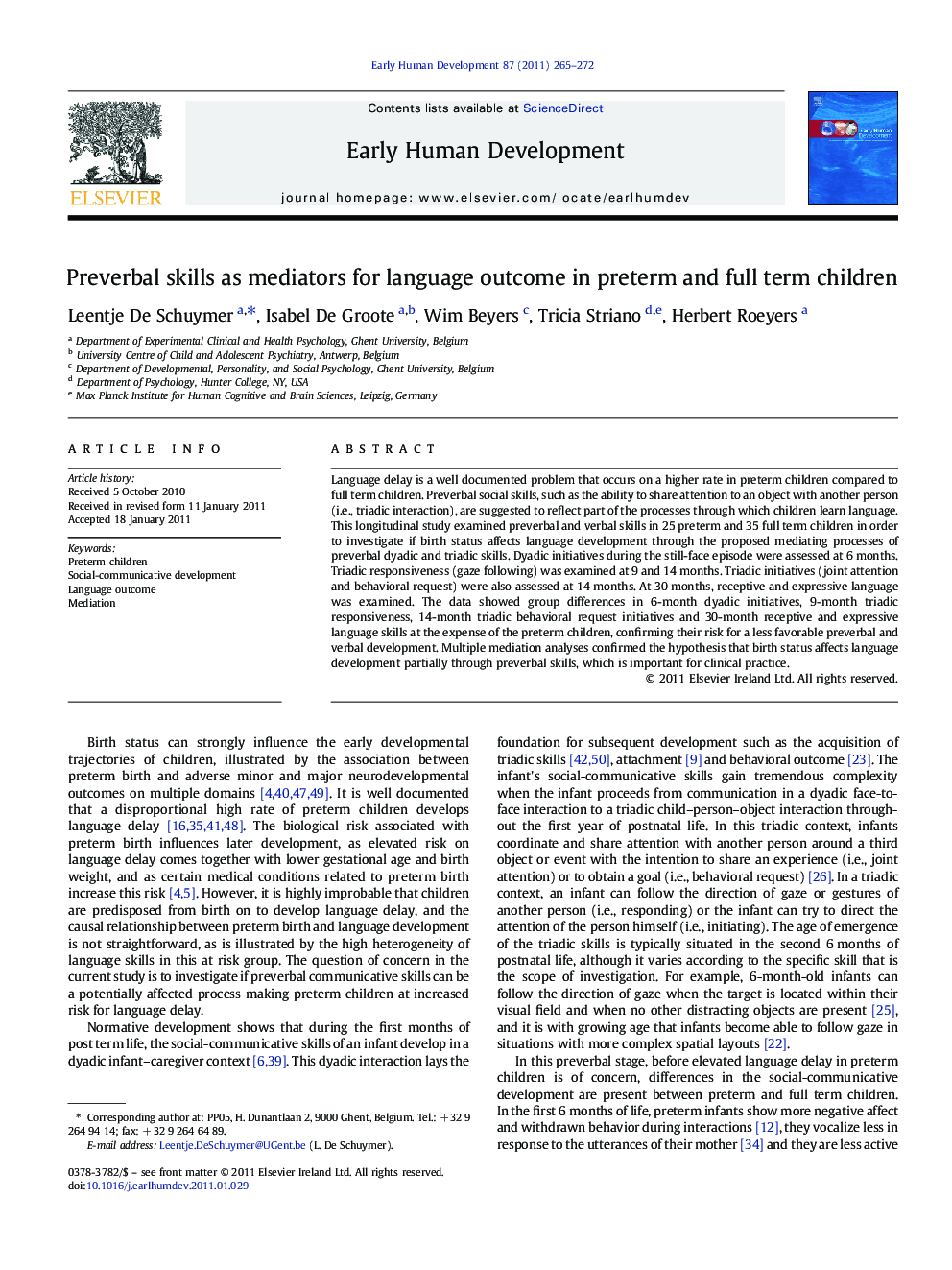| Article ID | Journal | Published Year | Pages | File Type |
|---|---|---|---|---|
| 6172205 | Early Human Development | 2011 | 8 Pages |
Abstract
Language delay is a well documented problem that occurs on a higher rate in preterm children compared to full term children. Preverbal social skills, such as the ability to share attention to an object with another person (i.e., triadic interaction), are suggested to reflect part of the processes through which children learn language. This longitudinal study examined preverbal and verbal skills in 25 preterm and 35 full term children in order to investigate if birth status affects language development through the proposed mediating processes of preverbal dyadic and triadic skills. Dyadic initiatives during the still-face episode were assessed at 6Â months. Triadic responsiveness (gaze following) was examined at 9 and 14Â months. Triadic initiatives (joint attention and behavioral request) were also assessed at 14Â months. At 30Â months, receptive and expressive language was examined. The data showed group differences in 6-month dyadic initiatives, 9-month triadic responsiveness, 14-month triadic behavioral request initiatives and 30-month receptive and expressive language skills at the expense of the preterm children, confirming their risk for a less favorable preverbal and verbal development. Multiple mediation analyses confirmed the hypothesis that birth status affects language development partially through preverbal skills, which is important for clinical practice.
Keywords
Related Topics
Health Sciences
Medicine and Dentistry
Obstetrics, Gynecology and Women's Health
Authors
Leentje De Schuymer, Isabel De Groote, Wim Beyers, Tricia Striano, Herbert Roeyers,
